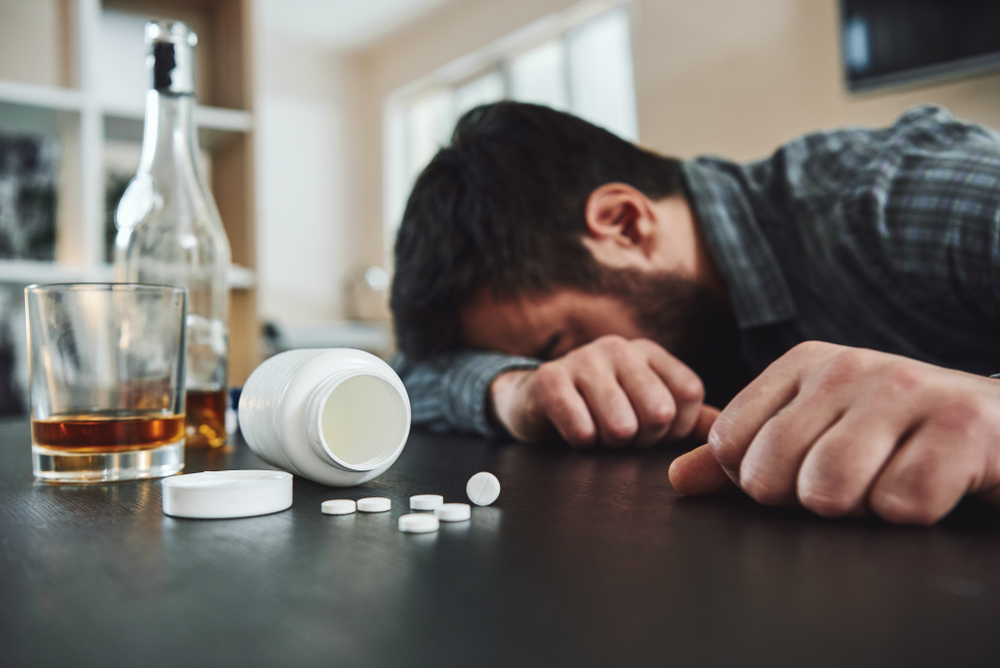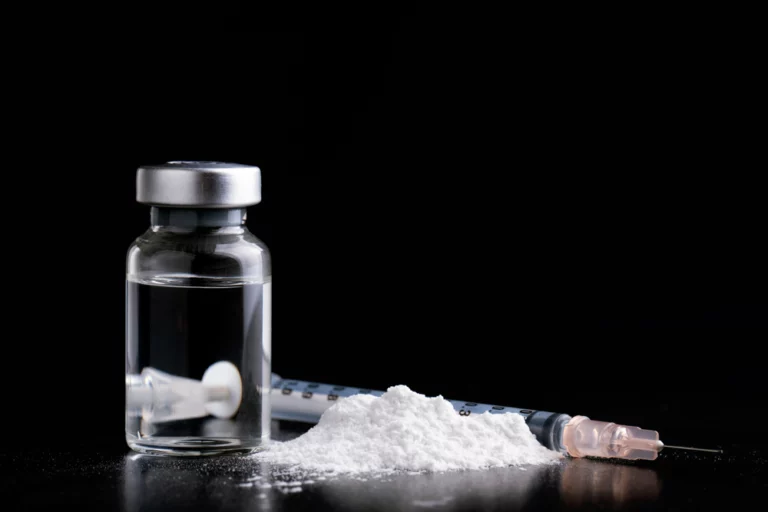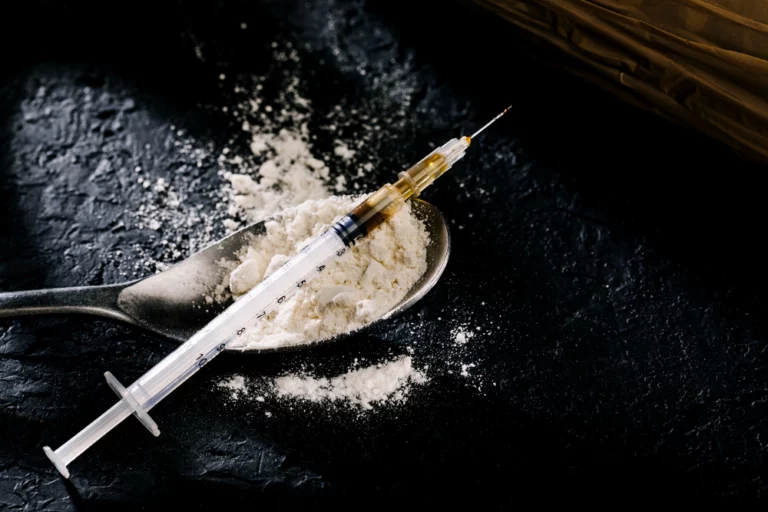Is it safe to mix Flexeril and alcohol? It is possible that you have already heard the phrase “drug interaction” before. A drug, usually a prescription like Flexeril, and another drug, food, or beverage may interact resulting in altered pharmacokinetics. The medication’s action is altered as a result. It is very important to never mix Flexeril and alcohol, as it may be considered both a drug-drug interaction and a drug-beverage interaction because alcohol is considered a drug. In this blog, we will discuss what Flexeril is, what occurs when you combine it with alcohol, and why you should never mix it the two together.
What is Flexeril?
Flexeril, a muscle relaxant, is manufactured by combining cyclobenzaprine with a class of Antidepressant drugs known as Tricyclic Antidepressants. It is used for short-term pain and discomfort caused by muscle injuries, including strains, sprains, and spasms. Rest and physical therapy are typically used in conjunction with Flexeril. Doctors prescribe Flexeril as part of a treatment plan that includes physical therapy and rest in most cases. Certain types of musculoskeletal diseases, primarily fibromyalgia, may be treated by Flexeril as well. Manipulating the central nervous system, Flexeril blocks the pain signals that would otherwise be sent to the brain. Abuse of Flexeril and its potential for Flexeril addiction can occur if the medication is used improperly.
How do Muscle Relaxers Work?
Muscle relaxants are usually prescribed for temporary rather than chronic muscle pain, and work in combination with rest, physical therapy, and other treatments to relieve pain and discomfort resulting from muscle injuries. Your body’s perception of muscle pain is altered by muscle relaxants, which ‘depress’ the central nervous system (your brain and spinal cord). Cramps (muscle spasms) and muscle spasticity (continuous muscle contraction) are alleviated through muscle spasms (muscle spasticity) because of this.
Is it Safe to Combine Flexeril with Alcohol?
Those who use cyclobenzaprine as directed may accidentally consume it with alcohol. Some individuals, on the other hand, use Flexeril in conjunction with other substances to boost their effects. Mixing Flexeril with alcohol can have serious or even lethal consequences. Because both substances depress the central nervous system, their effects become more intense when combined. This may result in severe sedation or drowsiness and may increase the chance of an accident.
What if You Have Already Mixed Them?
If you have already mixed muscle relaxants and alcohol, please stop consuming immediately. Seeing a healthcare professional as soon as possible is advisable, particularly if you’ve had more than one drink or don’t drink often. In order to avoid a possible overdose, you should avoid combining muscle relaxants with alcohol. Alcohol may intensify the effects of muscle relaxants, resulting in an increased risk of overdose if they are mixed.
Side Effects of Mixing Flexeril and Alcohol
Taking a muscle relaxer with alcohol can increase the muscle relaxer’s effects—and not in a positive way. This can result in dangerous side effects, such as:
- Increased Drowsiness
- Fatigue
- Slowed breathing
- Lack of coordination
- Poor memory recall
- Seizure
- Overdose
Why Do People Mix Substances Like Flexeril and Alcohol?
There are several reasons why people may accidentally or purposefully mix muscle relaxers with alcohol. Some people who take muscle relaxers may be unaware that they interact with other medications. Others may intentionally combine muscle relaxers and alcohol to create the desired high. The following are some of the reasons why people may accidentally or intentionally mix muscle relaxers and alcohol:
To Counter Side Effects
People may drink alcohol after being prescribed muscle relaxants to counteract the side effects. For example, they may drink alcohol thinking it will relieve nausea or headaches. In other words, people may consume muscle relaxants with alcohol because they believe the two substances will neutralize each other’s impacts. However, this is not true, and mixing muscle relaxants with alcohol does not counteract the consequences of either drug.
By Accident
An unintentional combination of alcohol and muscle relaxers can also occur. Someone may unknowingly mix alcohol and muscle relaxers, resulting in adverse consequences. Combining alcohol and muscle relaxers can also result in adverse consequences several hours after taking the relaxer if the person has consumed alcohol. It’s critical to ask your physician if there is anything you should avoid consuming when you begin a new prescription. To prevent dangerous drug interactions, be knowledgeable and cautious before drinking alcohol with any prescription medicine.
To Get High
Someone who accidentally discovers the effect of combining muscle relaxers and alcohol or seeks it out for that purpose may find it compelling. This combination can produce intense relaxation and euphoria, which some may seek out as a way to self-medicate or simply seek pleasure.
Dangers of Polysubstance Use
Polysubstance misuse can result in a variety of short- and long-term effects depending on the substance; however, there are some general dangers associated with polysubstance misuse which are listed below.
Increased Side Effects
The severity of drug interactions is magnified when substances are combined. When substances are misused together, the severity of these side effects is multiplied exponentially. The dangerous side effects of polysubstance abuse are not simply the sum of the consequences of each drug; they are often more serious and unique than the individual side effects of each substance. Nausea, nausea, body pain, imbalance, and changes in heart rate, respiration rate, and blood pressure are among the most common side effects observed in polysubstance abusers.
Increased Health Issues
Combining drugs can cause serious health issues by lowering metabolism and increasing the concentration of substances in the blood, leading to more severe toxicity and new metabolites. Individuals who use multiple substances are at a higher risk of developing several diseases and disorders. For example, individuals who drink heavily and inject drugs are more likely to have chronic hepatitis C, and cocaine users who smoke tobacco are at a higher risk of a heart attack.
Increased Mental Health Issues
Those who have co-occurring mental health issues and substance use problems may be at a greater risk of engaging in polysubstance abuse. Substance abuse frequently exacerbates the symptoms of mental health issues, and mental health issues can likewise result in worsened substance abuse. When multiple substances are abused, all of their consequences are magnified.
Can You Become Addicted to Flexeril?
According to professionals, Flexeril is generally considered nonaddictive; however, there is proof that Flexeril addiction is possible. Since Flexeril suppresses the central nervous system, some individuals find its effects desirable and use it improperly. Individuals may abuse Flexeril to feel relaxed, mildly euphoric, or sedated. When consumed in high quantities, Flexeril alters brain neurotransmitter activity. Physical dependence can result from prolonged use of the drug, which alters brain neurotransmitter activity. An individual taking a higher dose of Flexeril to cope with pain may become accustomed to its presence in the body and develop an addiction as a result. Withdrawal symptoms may occur if the drug is consumed in large doses over an extended period of time.
Can You Overdose on Flexeril?
It is possible to overdose on cyclobenzaprine, especially if it is combined with other substances such as alcohol. If you suspect someone has taken too much cyclobenzaprine, seek emergency medical attention immediately. The most common symptoms of a Flexeril overdose are drowsiness and a fast heartbeat.
Treatment for Flexeril and Alcohol Addiction
It’s very hard to complete muscle relaxant detox without medical assistance, particularly if you suffer from persistent, severe muscle relaxant withdrawal symptoms. Medical detox programs can provide a safe, clinical setting for muscle relaxant detox as well as medical care and intervention for muscle relaxant withdrawal symptoms. Professional support is often critical to a successful recovery from muscle relaxant addiction and may help to minimize the likelihood of a relapse caused by severe muscle relaxant withdrawal symptoms. A detox center treatment team can also provide reliable referrals for a muscle relaxant rehab program and ongoing treatment options.
Inpatient or outpatient muscle relaxer rehab is frequently the subsequent phase after detox. This phase of the muscle relaxer treatment process includes individual and group therapy, educational lectures, recovery programs like the 12 Step Program, Smart Recovery, and peer and professional support. Many individuals recovering from muscle relaxer addiction utilize sober living programs and aftercare services to continue their treatment. These programs and aftercare services supply important to support and accountability to assist newly sober individuals to prevent or recover from relapse and gradually reintegrate into society after rehab.
Polysubstance Addiction Treatment at Knoxville Recovery Center
We at Knoxville Recovery Center understand your difficulty. We comprehend how it feels to be addicted, defeated, and hopeless, but we also know there is hope. If you want to learn about our muscle relaxer addiction treatment services, contact us today to speak with an admissions specialist and learn more about our many addiction services and treatments offered on-site. With Knoxville Recovery Center, you are never alone.











